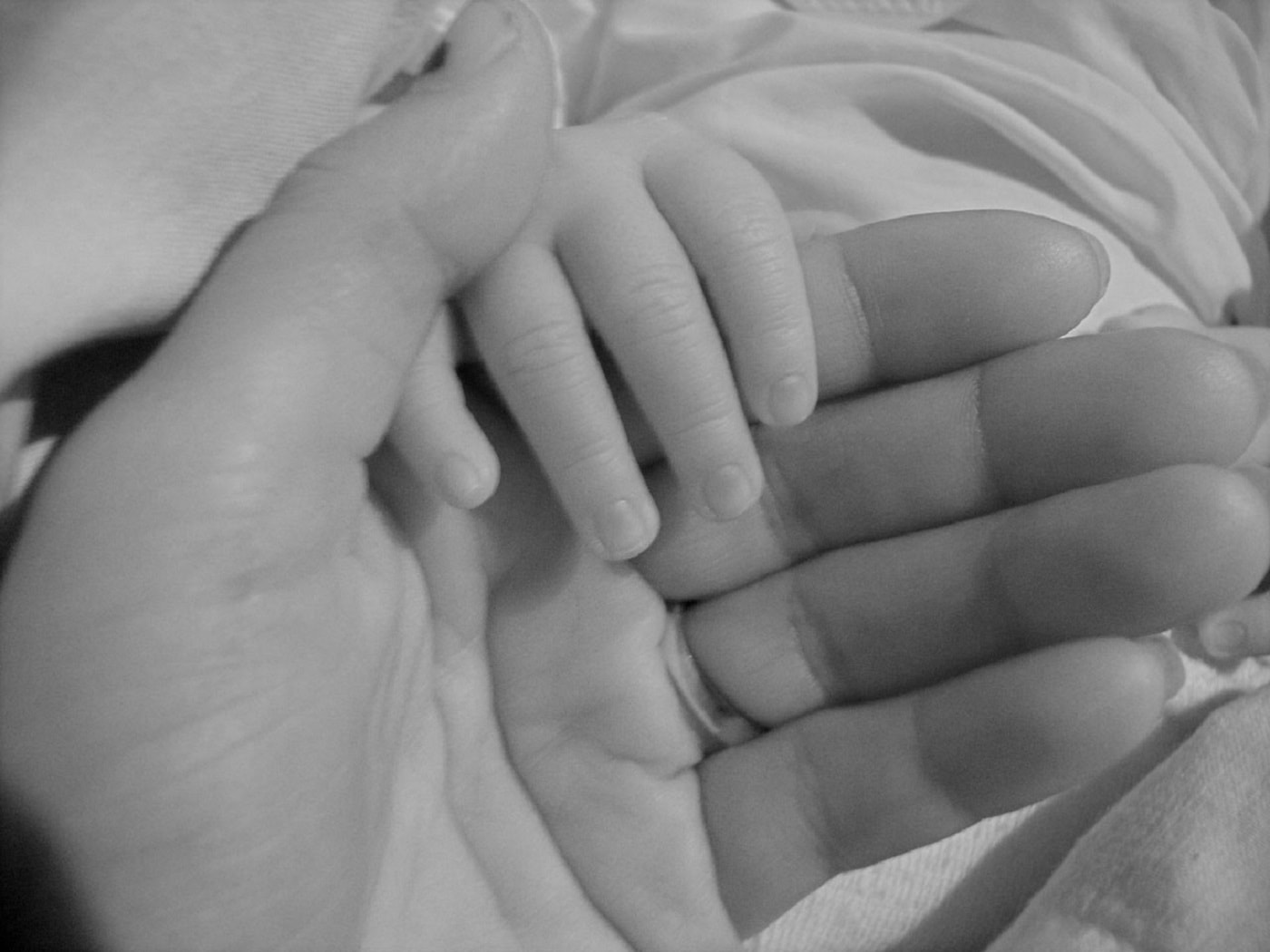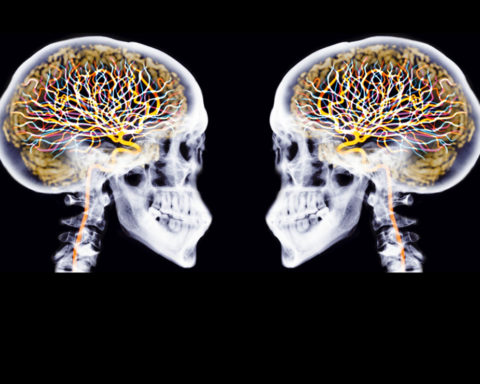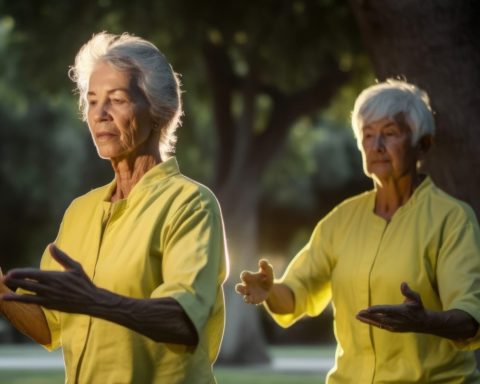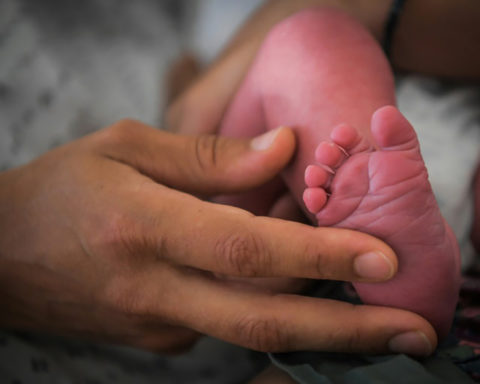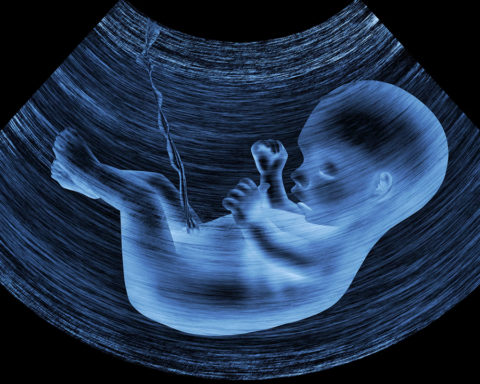Young people are faced with major challenges in terms of health: sexuality, addictions, education for tolerance, social relations and inclusion, etc. They are looking for solutions for prevention and seek help from public authorities, in particular schools, rather than health professionals: awareness raising (34 %), free of charge (19 %) and external support (14 %) are among the highest expectations.
The results of a major citizen consultation conducted with a 16-30 year-old panel clearly explain that health prevention is a major area to be developed, requiring support and follow-up, especially on issues related to sexual and physical health.
With this citizen consultation (1) carried out by the Ramsay Health Corporate Foundation with Make.org, it is clear that our young people want to challenge the public authorities and their schools. When asked about the health issues they identify and asked to propose solutions for action, more than 52,000 young people responded to the citizen consultation between May and July 2019. They even formulated 692 proposals that were unveiled during the second round of consultations. Health Prevention Meetings organized this October 16, 2019.
What can we learn from this consultation?
Young people feel mainly concerned by topics related to their sexual health (30 % of responses) and addictions such as tobacco, alcohol, drugs, etc. (30 % of responses). (10 %). They advocate as a priority action solutions for health prevention directed towards raising awareness (34 %) and free of charge (19 %).
However, they do not see themselves as agents of change and emphasize the role of structures rather than individual action. Thus, only 7 % think that change must come from themselves, and they give priority to public authorities and schools (2/3 of the proposals) rather than to health professionals.
Surprisingly, problems related to physical activity, screens and stress are not very apparent in this consultation.
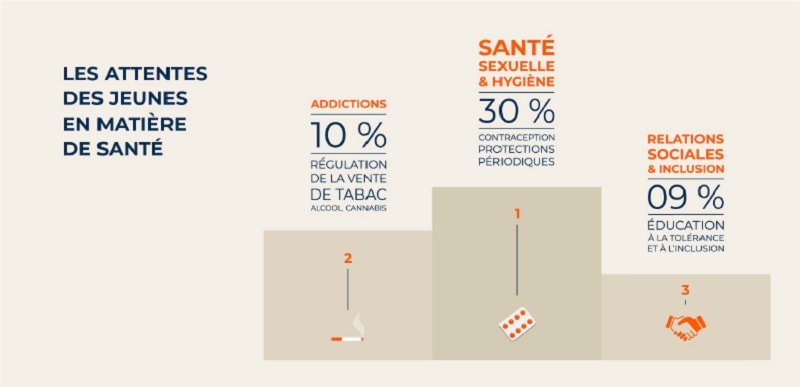
Sexuality, hygiene and addictions: young people's main health concerns
The majority of the participants in the consultation mentioned as health issues of direct concern to them those related to sexual and physical health (30 % of the themes raised): they aspire to better access to contraception and to hygienic protection and are particularly in need of awareness raising actions on sexual risks.
Other topics include the problem of addictions (regulation of the sale of tobacco, alcohol and cannabis) and the issues of tolerance and inclusion education (10 % and 9 % respectively). It should also be noted that although the subject of addictions is one that emerged for the most part from this consultation, it gives rise to a great deal of controversy on the actions to be implemented, particularly with regard to the decriminalisation of cannabis.
Why not enjoy unlimited reading of UP'? Subscribe from €1.90 per week.
To a lesser extent, many topics were raised, such as the prevention of harassment at school (7 %), where young people demanded more awareness-raising actions and sanctions. They also called for easier access to psychologists and for better training from an early age to promote tolerance.
Another area of concern is the cost of a healthy diet (6 %). There is now strong evidence that poor nutrition is associated with depression, according to a recent study published in Plos Ones, where it has been shown that eating healthier would help reduce the signs of depression in young people.
Access to health care and health professionals is also a concern: 6 % of the young people interviewed expressed concern about access to rights and care, even though we know that equity in access to care is a global issue.
In a report published on Wednesday 16 October 2019, Médecins du Monde calls for a "change of direction" and an "inflection of regressive policies towards the most fragile populations".
Proof, if proof were needed, that young people need support, a measure in the draft Social Security Financing Bill (PLFSS) for 2020 provides for extend free contraceptionfor girls under the age of 15. A way to limit the use of emergency solutions such as voluntary interruption of pregnancy (abortion).
The problem of medical deserts in all French regions is an integral part of the concerns of young people. For the ARS (Regional Health Agency), "Healthcare provision and access to local care is a major issue in terms of regional planning and equality for health".
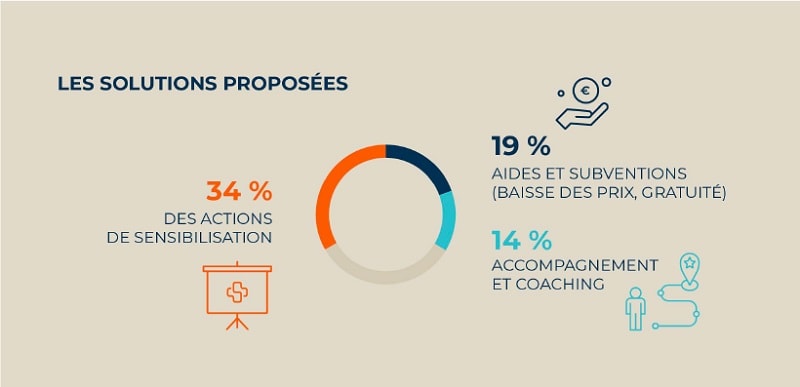
Awareness-raising, price control and support as vectors for priority actions
The nature of the solutions proposed by the participants in this citizen consultation to encourage young people to take better care of their health is essentially based on a logic of awareness (34 %): better detect psychological risks, talk more about sexuality or harassment. These are all avenues of action that underline the need to strengthen prevention in both the school and family settings.
Another point that is widely mentioned is that of solutions with controlled costs, in particular through aid and subsidies (17 %): young people are attentive to proposals for lower prices, reimbursement or even free products such as condoms or hygienic protection.
The third lever of action, support and coaching actions are evoked in 14 % of the participants. Parents, teachers, and professionals from santé́sont were thus called upon to ensure a better follow-up of young people. This point echoes a strong observation: although young people feel concerned about their health, they do not consider themselves to be actors of change. Indeed, they emphasise the role of structures rather than individual action to act on their health. This is why they prefer external support, particularly from the State (34 %) and schools (30 %), and this, in front of health professionals and health establishments (11 % and 7 % respectively). Only 7 % of young people see themselves as agents of change.
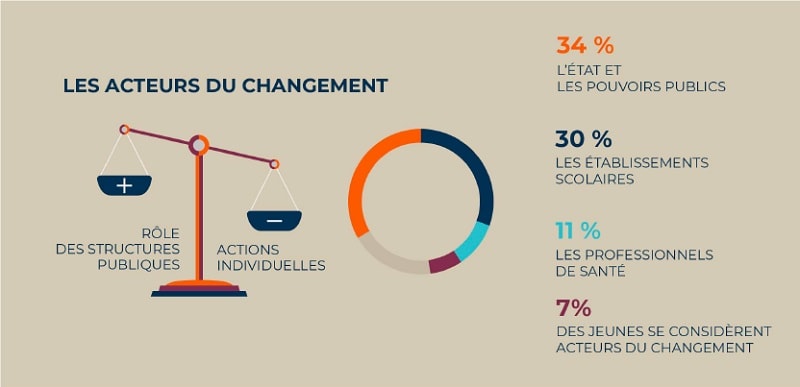
Nine proposals for action have been agreed upon
At the end of the consultation, Make.org selected nine proposals for action, divided into three areas of focus, which are the subject of consensus when it comes to health prevention among young people:
To fight against disinformation and to favour analyses that decipher the news, join the circle of UP' subscribers.
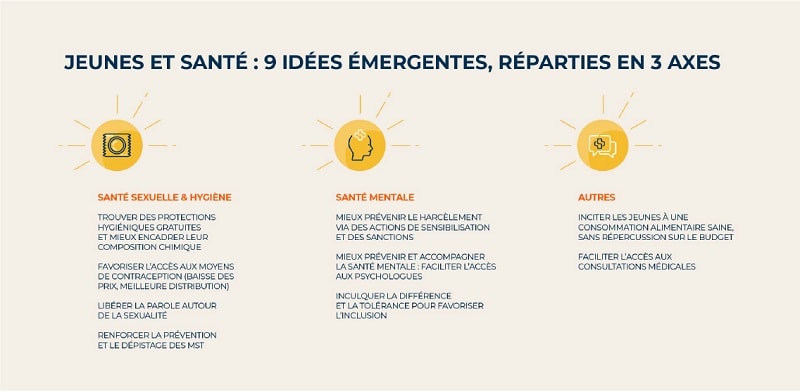
(1) Consultation methodology: Citizen consultation carried out by Make.org for the Ramsay Sante Corporate Foundation ́ from 06/05/2019 to 07/07/2019 to collect the opinions and proposals of young people on their health prevention issues. This consultation brought together 52,300 young people between 16 and 30 years of age who made 692 health prevention proposals.
The Make.org methodology is based on a fine moderation of the proposals collected. Algorithms developed by Make.org guarantee each validated proposal an equal level of exposure, and organize a competition between them. Thanks to this permanent rotation, Make.org consultations are totally preserved from massive trolling, and allow for a real popular emergence.
(2) Source: Odoxa survey for the Ramsay Health Foundation conducted on 7 and 8 March 2018.


